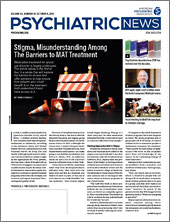On August 30, an article in Science reported the findings of the first-ever large-scale genome analysis into sexual orientation. The study validates same-sex sexual behavior as a complex human trait influenced by numerous biological and environmental factors.
“We wish to make it clear that our results overwhelmingly point toward the richness and diversity of human sexuality,” lead author Andrea Ganna, Ph.D., a geneticist at the Broad Institute of MIT, and colleagues wrote. “Our results do not point toward a role for discrimination on the basis of sexual identity or attraction, nor do our results make any conclusive statements about the degree to which ‘nature’ and ‘nurture’ influence sexual preference.” In brief, this study analyzed the genome sequences of nearly 500,000 people who provided DNA samples and completed surveys about their sexual behavior. The samples came from both the national UK Biobank and the consumer genomics company 23andMe. The results showed that lots of genetic variants likely contribute to sexual behavior, and this genetic variation accounts for between 8% to 25% of the differences in sexual behavior.
Large genetic analyses have typically been welcomed in psychiatry; studies that uncover genetic risk factors for depression or substance use help reduce stigma by validating the biological nature of these disorders while also identifying new therapeutic drug targets. For many psychiatrists, exploring the genetic factors that influence sexuality is not as cut and dry.
“I was torn after reading about this study,” said Eric Yarbrough, M.D., a New York City psychiatrist, chair of APA’s Council on Minority Mental Health and Health Disparities, and past president of the Associationof LGBTQ Psychiatrists. On the one hand, he said he is glad that research like this is being conducted. The idea that sexual orientation has some hereditary basis is not new: studies have previously shown that same-sex sexual behaviors run in families. On the other hand, this analysis adds new context into some of the mechanisms involved. For example, the analysis strengthened a long-held idea that sex hormone regulation affects sexual orientation. The study also suggested that there may be a connection between same-sex sexual behavior and the olfactory system in men.
But while the study investigators were careful to avoid simplistic conclusions, especially discriminatory conclusions, the data are open to interpretations that might be disheartening to some in the LGBTQ community. “Many gay advocates say they are born a certain way, and this study does sort of contradict that,” said Yarbrough. “It doesn’t mean they are wrong, but it does shed light on how complex sexual orientation and identity are.”
The modest influence of genetics reported in the study might also be misrepresented by individuals or groups who believe gay behavior can be modified, noted Jack Drescher, M.D., a clinical professor of psychiatry at Columbia University. “Some on the religious right have equated being gay with alcoholism,” he told Psychiatric News. “Even though there may be a genetic influence on sexual behavior, it doesn’t mean you have to give in to the impulses. This study will probably not change any opinions in that regard.”
Drescher and Yarbrough also noted that this study did not fully address sexual identity. The study participants all answered surveys about their sexual behavior (for example, “Have you ever slept with someone of the same sex?”). However, one’s actions do not necessarily reflect their identity—there are those who might feel an attraction to the same sex but have not acted on it, for example. The analysis also did not factor in gender identity, which overlaps with one’s sexual identity.
At the heart of Yarbrough’s concern with the study—and the media attention it has drawn—is that he thinks there are more issues worthy of attention than trying to find genes associated with sexual behavior.
“This study is not going to change the problems gay and lesbian people are facing now—like lack of access to affirming health care or civil rights concerns,” he said. “These findings reinforce that there are many pathways by which people arrive at their sexual identity,” echoed Drescher. “However, there is a historical and lingering problem in the field [of psychiatry] in that therapists think all conversations with gay patients need to discuss the reasons they are gay.”
Drescher noted that some patients grappling with their sexual identity may want to know more about the biology of sexuality, so psychiatrists are welcome to highlight this study as evidence that same-sex sexual behavior is a normal behavior. As a result, it should not be overemphasized (a point he discusses in a commentary on page 14). “We do not routinely ask heterosexual patients why they think they’re heterosexual. It should be no different for gay patients.” The Science study was supported in part by the Eunice Kennedy Shriver National Institute of Child Health and Human Development. ■
“Large-Scale GWAS Reveals Insights Into the Genetic Architecture of Same-Sex Sexual Behavior” is posted
here.

